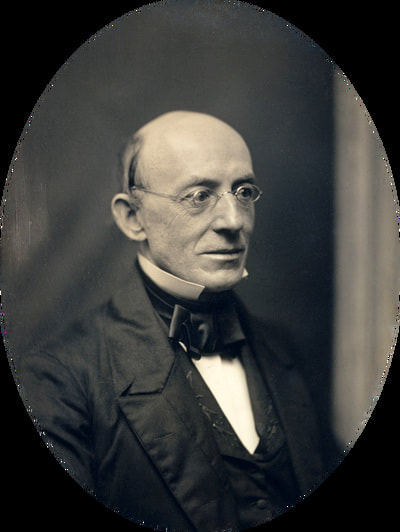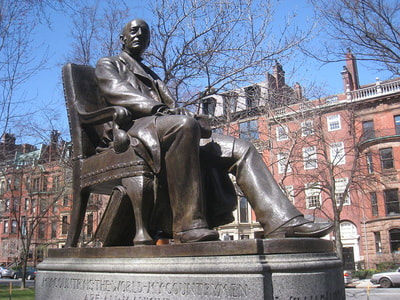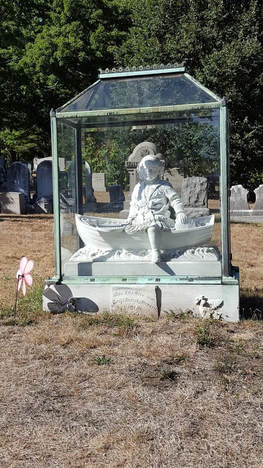William Lloyd Garrison (WLG) felt the Constitution was a contract with death.
Updated May 21, 2018
William Lloyd Garrison (WLG) of Boston first published The Liberator newspaper in 1831. Copies were recovered among the dead slaves after the Nat Turner uprising of 1831 in Southampton, Virginia. Why did the merchants of Boston then attempt to hang WLG? Our Civil War Tour beginning at Faneuil Hall will reveal the answer and much more about Boston’s violent political nature and the eventual victory of the abolitionists.
WLG published the Liberator for thirty-four years. The paper was illegal in the South but somehow made its way to the plantations, Canada, England and Scotland. A North Carolina Grand Jury indicted him for publishing incendiary material and the South Carolina legislature offered a $5,000 reward if captured and transported to South Carolina. He published to the very day that the 13th Amendment to the Unites States Constitution formally abolished slavery.
Here is an extract from the very first Liberator, reiterating his very unpopular speech to the Park Street Church. I am aware that many object to the severity of my language; but is there not cause for severity? I will be as harsh as truth, and as uncompromising as justice. On this subject, I do not wish to think, or speak, or write, with moderation. No! No! Tell a man whose house is on fire to give a moderate alarm; tell him to moderately rescue his wife from the hands of the ravisher; tell the mother to gradually extricate her babe from the fire into which it has fallen;—but urge me not to use moderation in a cause like the present. I am in earnest—I will not equivocate—I will not excuse—I will not retreat a single inch--and I will be heard. The apathy of the people is enough to make every statue leap from its pedestal, and to hasten the resurrection of the dead.
Although he saw slavery as death WLG never advocated violence as a means to an end.
When Charleston South Carolina fell to the Union Army, Lincoln sent WLG on a victory tour. He was surrounded by 10,000, emancipated slaves many with children named Garrison.
He died May 24, 1879 in NYC, at his daughter's home. he is buried at Forest Hills Cemetery, Boston Mass.
Next tour June 23, 2018, 10:00, rsvp [email protected]
[Forest Hills Cemetery offers great tours that reveal the historical growth of Boston through monuments that tell a full story.
Here is one example.



